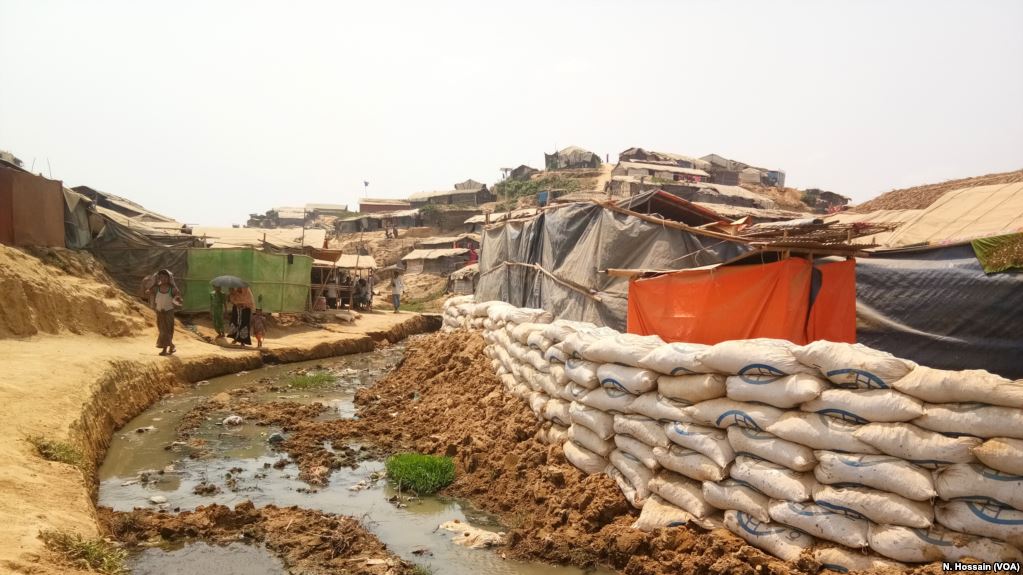
With experts warning that heavy rains and cyclonic storms could devastate new Rohingya settlements in Bangladesh, several aid agencies have begun efforts to protect the refugees ahead of the impending monsoon season, which typically starts in May.
The aid agencies are doing work on different levels to stave off the risks of flooding and landslides, including efforts to move many refugees away from the unsafe areas.
“We are trying to relocate as many families as possible and move them to safer ground. We are also advocating very strongly with the government of Bangladesh to find suitable new flatlands so that we can quickly move the families. The government has allocated additional land,” said Caroline Gluck, United Nations refugee agency (UNHCR) spokeswoman in Bangladesh. “But it's very forested and hilly and it requires lot of work to make it habitable and suitable for relocations. We are trying to do that now. But, it's a race against time.”
Mohammad Abul Kalam, Bangladesh’s refugee relief and rehabilitation commissioner, said plans to save the refugees from potential disasters are moving forward quickly.
“In a first major step we are expanding the largest refugee camp by 500 or 600 acres (100 - 200 hectares) on its west. We believe we will be able to relocate over 100,000 of the refugees who are facing risks of floods and landslides to this safer area. The progress of this plan is going on well and we have in fact already relocated 10,000 people to this safer ground,” Kalam told VOA.
In about a month, all related work will be over and “no refugees will finally be left at risk,” Kalam said.
Mass arrivals
Following a military crackdown in August, in which Myanmar’s soldiers were accused of rape, murder and arson in Rohingya villages in Rakhine state, hundreds of thousands of ethnic Rohingya Muslims began fleeing the Buddhist majority country.
Although Myanmar has consistently denied the charge of atrocities by the soldiers, since August, over 700,000 Rohingya Muslims have crossed over to southeastern Bangladesh, where most of them are living in flimsily built bamboo-and-plastic shacks, on newly deforested hills.